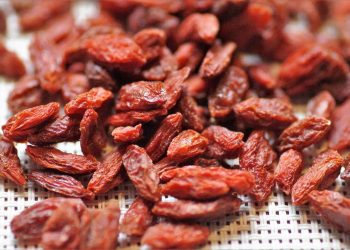Did you know that your eyes might be crying out for a little citrus love? It’s true! While we often think of citrus fruits as refreshing snacks or zesty additions to our drinks, they play a vital role in maintaining eye health. In fact, incorporating citrus fruits into your diet can help protect against various eye conditions and promote overall vision well-being. Let’s dive into five citrus secrets that can naturally boost your eye health.
Contents
1. The Vitamin C Powerhouse
Citrus fruits like oranges, grapefruits, lemons, and limes are renowned for their high vitamin C content. This vitamin is a potent antioxidant that helps combat oxidative stress in the body, including the eyes. Oxidative stress can lead to conditions like cataracts and age-related macular degeneration (AMD).
Why It Matters
Research has shown that vitamin C can reduce the risk of developing cataracts. A study published in the American Journal of Clinical Nutrition found that individuals with higher intakes of vitamin C had a significantly lower risk of cataracts compared to those with lower intakes (Chong et al., 2008). By including citrus fruits in your diet, you’re not only treating your taste buds but also giving your eyes a fighting chance.
Easy Ways to Get Your Vitamin C Fix
- Morning Boost: Start your day with a glass of fresh orange juice.
- Zesty Salads: Add lemon or lime juice to your salads for a refreshing twist.
- Snack Attack: Keep some easy-to-peel mandarins handy for a quick snack.
2. Lutein and Zeaxanthin: The Dynamic Duo
While citrus fruits are fantastic for vitamin C, they also contain other nutrients that are crucial for eye health. Although not as rich in lutein and zeaxanthin as leafy greens, citrus fruits still contribute to your overall intake of these carotenoids. These compounds are found in the retina and help filter harmful blue light, protecting your eyes from damage.
The Benefits of Lutein and Zeaxanthin
Multiple studies suggest that a diet rich in lutein and zeaxanthin can lower the risk of AMD. For instance, a comprehensive review in Nutrients highlighted that these carotenoids are associated with improved visual performance and reduced risk of eye diseases (Ma et al., 2020).
How to Boost Your Intake
- Fruit Combinations: Pair citrus fruits with spinach or kale in smoothies for an eye-health powerhouse.
- Citrus and Avocado: Create a salad with diced avocado (another source of lutein) and a citrus dressing.
3. Hydration and Eye Health
Citrus fruits are not just about vitamins; they’re also packed with water. Staying hydrated is essential for maintaining optimal eye health. Dehydration can lead to dry eyes, irritation, and discomfort.
The Hydration Connection
The Mayo Clinic emphasizes the importance of hydration for overall health, including eye health. Dehydrated eyes can lead to symptoms like redness, blurred vision, and fatigue. By consuming water-rich fruits like citrus, you can support your hydration levels and, in turn, your eye comfort.
Tips for Staying Hydrated
- Infused Water: Add slices of lemon or lime to your water for a refreshing taste.
- Citrus Sorbet: Make a homemade sorbet using pureed citrus fruits for a hydrating treat.
4. Anti-Inflammatory Properties
Citrus fruits contain flavonoids, which have anti-inflammatory properties. Chronic inflammation is linked to various eye diseases, including AMD and diabetic retinopathy. By consuming anti-inflammatory foods, you can help reduce the risk of these conditions.
The Science Behind It
A study published in the journal Nature found that flavonoids can improve vascular function and reduce inflammation, which is beneficial for eye health (Rudolph et al., 2015). Including citrus fruits in your diet can contribute to a lower inflammatory response in the body, supporting your eyes in the process.
Flavonoid-Rich Citrus Recipes
- Citrus Salsa: Mix diced oranges and grapefruits with red onion and cilantro for a zesty salsa.
- Herbal Tea: Brew herbal tea and add a splash of lemon for an anti-inflammatory boost.
5. Eye-Healthy Fiber
Citrus fruits are also a good source of dietary fiber. While fiber is often associated with digestive health, it plays a role in maintaining stable blood sugar levels, which is crucial for those at risk of diabetic retinopathy.
Why Fiber Matters
High-fiber diets can help regulate blood sugar levels and reduce the risk of developing diabetes-related eye conditions. According to the Cleveland Clinic, fiber can improve overall metabolic health, which is essential for eye well-being.
Incorporating Fiber into Your Diet
- Citrus Smoothies: Blend citrus fruits with oats or chia seeds for a fiber-packed breakfast.
- Fruit Parfaits: Layer yogurt with citrus segments and granola for a delicious, fiber-rich snack.
FAQs
1. How often should I eat citrus fruits for eye health?
Incorporating citrus fruits into your daily diet is ideal. Aim for at least one serving per day, whether it’s a whole fruit, juice, or in a dish.
2. Are there any side effects of eating too much citrus?
While citrus fruits are healthy, overconsumption can lead to digestive issues, such as heartburn or acid reflux, especially in sensitive individuals.
3. Can I get the same benefits from supplements?
While supplements can help, whole foods like citrus fruits provide a range of nutrients and benefits that supplements may not replicate.
4. What are some other foods that support eye health?
In addition to citrus fruits, consider incorporating leafy greens, carrots, nuts, and fatty fish into your diet for comprehensive eye health support.
Conclusion
As we journey through life, our eyes are our windows to the world. Taking care of them is essential, and incorporating citrus fruits into your diet is a delicious and effective way to do just that. From boosting vitamin C intake to providing hydration and anti-inflammatory properties, citrus fruits are a true ally in promoting eye health.
So, next time you peel an orange or squeeze a lemon, remember that you’re doing more than just enjoying a tasty treat; you’re also giving your eyes some much-needed love. Let’s embrace the citrus secrets and keep our vision sharp for years to come!
References
-
Chong, E. W. T., Wong, T. Y., Hughes, R., & Guymer, R. H. (2008). Dietary antioxidants and the risk of age-related macular degeneration: a systematic review. American Journal of Clinical Nutrition, 87(6), 1837-1845. https://doi.org/10.1093/ajcn/87.6.1837
-
Ma, L., Wang, Y., & Jiang, L. (2020). The Role of Lutein and Zeaxanthin in Eye Health. Nutrients, 12(4), 1029. https://doi.org/10.3390/nu12041029
-
Rudolph, T. K., et al. (2015). Flavonoids: The Importance of Bioavailability. Nature, 525(7569), 494-495. https://doi.org/10.1038/nature15602
-
Mayo Clinic. (n.d.). Nutrition and healthy eating. Retrieved from https://www.mayoclinic.org/healthy-lifestyle/nutrition-and-healthy-eating
-
Cleveland Clinic. (n.d.). Fiber: Why Your Body Needs It. Retrieved from https://health.clevelandclinic.org/fiber-why-your-body-needs-it/
Get Your FREE Natural Health Guide!
Subscribe now and receive our exclusive ebook packed with natural health tips, practical wellness advice, and easy lifestyle changes — delivered straight to your inbox.














